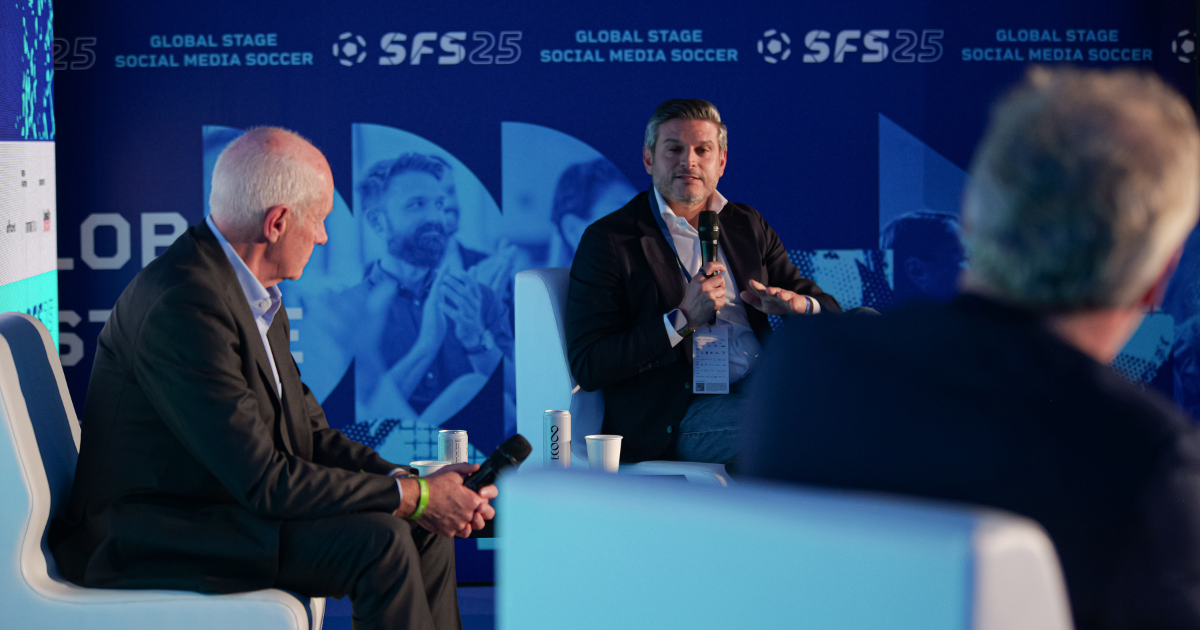
Knowing the data to know your customers
The last SFS25 meeting of the Global Stage opened a dialogue on data awareness with the help of Francesco di Biase Italy Chief Representative of PLATINIUM GROUP, Paolo Magri CEO of EICMA and Mattia Gamberoni Head of Italy and Spain at STRIPE.
In the world of sports and entertainment events, truly knowing your audience means making smarter decisions, building better experiences, and generating value. The problem? Many clubs and organizations don’t know their data. They don’t “read” their fans and end up building strategies based on intuition rather than real information. The question then becomes inevitable: are we really getting to know our audience, or are we chasing an illusion?
The example of EICMA shows how much reality can change when data is put at the center. For years, the event had no real knowledge of visitor behavior; today, it has one of the most advanced data control structures in the industry. This means not only knowing who the customer is, but understanding them, analyzing their movements, anticipating their needs, and building the experience based on what they really want. With over 600,000 attendees and peaks of 100,000 visitors on Saturdays, EICMA began to study individual provinces rather than entire regions, in order to recognize flows and optimize services. This led to the strategic decision to purchase 15,000 parking spaces to be offered free of charge through ATM: an operation that led to a significant increase in attendance and an immediate improvement in public satisfaction.
The power of data also allows for rapid tactical interventions: when a subway strike threatened to block thousands of visitors, the organization was able to target only those people who were actually affected, making them aware of the situation and facilitating their participation. The result was clear: over 13,000 parking spaces occupied, a flow managed without chaos, and an event that remains close to its users because it truly understands them.
The same approach led to the success of the event organized at the Misano racetrack: less than a month of preparation and a total sell-out, thanks to the ability to read and activate real demand.
Payment management is another crucial front. 60% of users who purchase from mobile devices use Apple Pay or Google Pay. Ignoring this means losing sales: 80% of people abandon their purchase if they cannot find the method they usually use. Facilitating checkout, streamlining payment, and introducing solutions such as “buy now, pay later,” now widespread among the younger generation, can increase turnover by between 10% and 40%. Amazon demonstrates this every day with impulse purchases: one click from content to shopping cart, without friction. It’s not a technical detail, it’s pure economics.
Today, there is also discussion about the possibility of integrating payment directly into artificial intelligence. No one has a definitive answer yet, but the direction is clear: simplify, accelerate, and reduce user effort. It is no coincidence that in Europe, checkout takes an average of three minutes, but by the second minute, there is already a 66% drop. Every second lost is a customer lost.
All of this goes into the income statement. Every club, every event, every company should ask itself whether there is really an awareness of the value of data. In Italian football, for example, this maturity is still a long way off: there is a lack of technical expertise and strategic vision, despite the fact that data management is now as important as the game played on the field. Progress means having a deep understanding of one’s economic and social environment.
And for those with little data? There are two ways forward: exploit data from other ecosystems, as is the case with payment platforms or digital infrastructures, or rely on artificial intelligence, which allows you to intercept and guide users at the very moment they are looking for information. If AI knows what EICMA is, where it is, and how it works, the next step is natural: allow the user to purchase directly through that channel.
Ultimately, everything converges on a simple principle: we cannot lose the customer. If the customer runs away, the market runs away too, and the risk of failure becomes real. Admitting that we are behind in Italy is an act of honesty. But it is also a starting point: we can, and must, do much better. And data is the key to doing so.



